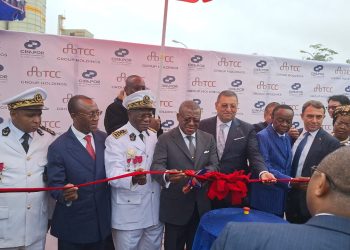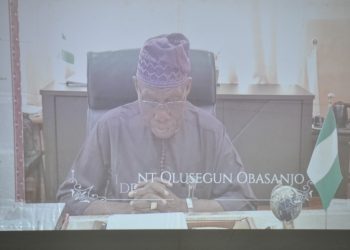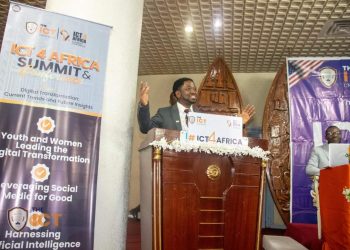Story, Louvier Kindo Tombe
The different stakeholders involved in humanitarian assistance in Cameroon have pledged to reinforce collaboration in providing humanitarian response in affected communities. It was during the first ever organized localization days that held in Yaounde from November 28 – 29, at the Mont Febe Hotel.
“The main objective is to improve the diverse intervention of actors involved in the humanitarian response in some of our regions,” says Fred Ebongue, Secretary General at the Ministry of Decentralization and Local Development.
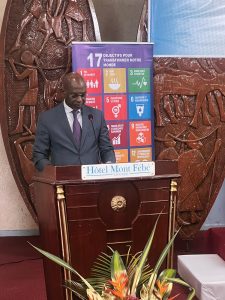
Mr Ebongue, who chaired the deliberations represented the Minister, George Elanga Obam. The Ministry of Decentralization and Local Development is greatly concerned when it comes to delivering humanitarian assistance to those affected by one issue or the other. That explains why local and regional authorities were present at the localization days.
“It is neccesary to involve our local and regional authorities and civil society,” Fred Ebongue told News Upfront.
For two days, the different stakeholders brainstormed on two main aspects. They took a balance sheet of the humanitarian situation in the country and then designed a road map of perspectives.
That was done in the presence of UN partners who are equally mobilizing, and assisting the government of Cameroon in that light. “We are reflecting of how to operationalize the commitment made in 2016”, says Nadine Perrault, Resident Representative of UNICEF Cameroon. She was among the scribes at the opening ceremony.
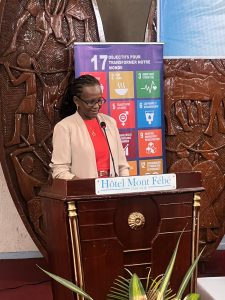
“The commitment was to become more efficient and collaborate with local actors giving them the platform to participate in all decision making,” Nadine Perrault said.
According to OCHA, “This year, one in six people living in Cameroon – or 4.7 million people – will need humanitarian assistance and protection. Insecurity in the affected regions is expected to remain high and continue to limit people’s access to food and other essential needs”. The regions greatly affected are Far North with the Boko Haram insurgency, East region with the numerous refugee crisis and the North West and South West regions affected by the close to 7 years old Anglophone crisis.
By organizing the localization days, the idea is to strengthen what is already been done in the country, and map out fresh avenues that can contribute to boost the response plan. It is also give room for local actors to share experiences and identify funding opportunities available for humanitarian actors.
The localization days were organized in collaboration with the United Nations Systems in Cameroon.





